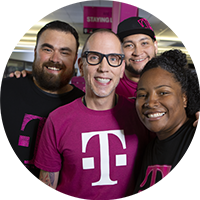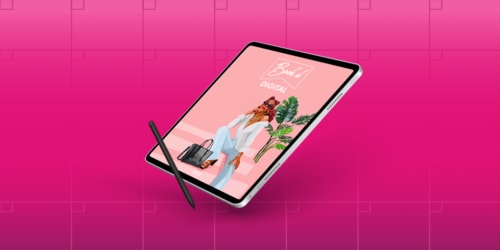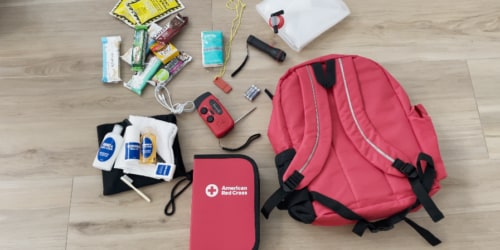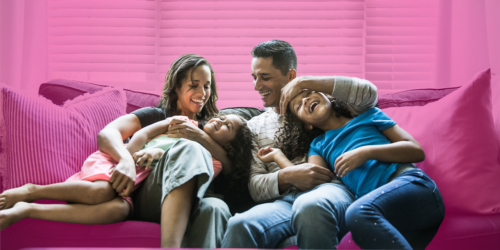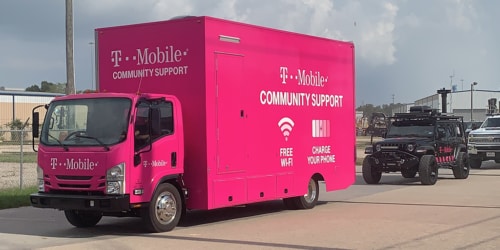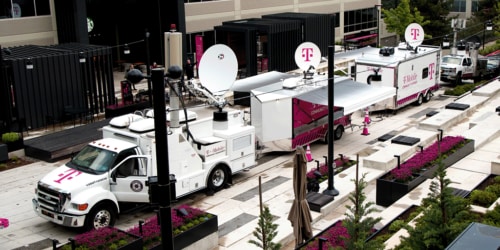There’s an aesthetic-focused community on social media that has a message for you: planners are evolving. From IG reels to TikTok, digital planning is the trend that has influencers showing off beautifully curated calendars and specialized templates that demonstrate how customizable — and convenient! — it can be to organize your life with your device.
This modern mode of digital planning uses an interactive pdf to combine the tried-and-true organization of paper planners, calendars, and similar tools with the modern edge of your favorite device. And when you pair that device with T-Mobile’s 5G network — the country’s largest, fastest and most awarded — you’ll be able to seamlessly keep your planner up to date on any platform, wherever you go.
“We believe in having a booked and balanced life and this is a vehicle to help you achieve your goals and dreams,” says Tannera George, co-owner of the luxury stationary and lifestyle company Book’d.
Together with Adrienne Harris, the two women started Book’d in 2018 with hard copy options, and have since grown to also offer a digital platform that meets the demand of clients who were excited by what they were seeing on social media’s digital planning community.
“We were fresh out of undergrad and looking for a way to enhance our productivity and achieve new goals with the help of a planner and wanted to create a meaningful representation of who we are as Black women in the organizational space,” says Adrienne. “We saw a need, especially in our community, for women to be able to strive for their dreams and be able to hold themselves accountable in those pursuits.”
Though it took some time, as self-proclaimed “pen and paper girls,” these two have cracked the code to digital planning and share some important tips on how anyone can reap the benefits of these tools.
Since getting started requires a few more steps than just cracking open a bound paper planner, here’s a handy guide that breaks down exactly how to set yourself up for success.
Getting Started with Digital Planning
STEP 1: Pick your favorite device
The first step in your journey will be to prepare your favorite device, smartphones are great for when you’re on the go and tablets are best for when you need a bit more screen space for your brainstorming. If your planner is in the cloud, then you can make edits on the go, which is incredibly convenient if you travel often.
“It’s very useful for your digital planner to link across devices,” says Tannera. “I prefer to use a tablet. Since it’s in between the size of a phone and a desktop, it’s that perfect middle ground.”
STEP 2: Find an app that works for you
While there are plenty of apps available, three of the most popular options are GoodNotes, Notion and Notability. One of the first lessons you’ll realize upon taking a deep dive into the world of digital planning is that it’s a community built on the pillar of customizability. Financially, for example, if you’re not looking for paid services, you can easily avoid apps that cause you to sign up for yet another subscription. As a beginner, a free digital planning app combined with a free template can be a great low stakes way of getting started.
“There’s so many note-taking apps and pdf annotators out there and finding the right one can get a bit overwhelming,” says Tannera. “A great starting point would be GoodNotes for Apple users and Notability for Android users. Both apps have free versions, and offer paid plans if you decide you want to upgrade.”
STEP 3: Get informed and get inspired
So, you’ve downloaded a digital planning app on your device and now you’re waiting for the magic to happen. This is where your personal style and preferences will come into play. There are plenty of great tutorials that show you how to setup a digital planner based on your app of choice, but just know that there are usually three basic steps involved: downloading a template, uploading the template to your app, and then filling it out with your life.
“You don’t need a planner if you don’t have plans right,” jokes Adrienne. “Figure out what you want to accomplish that year and any goals you want to want to work towards, and then you can use it as a tool to hold yourself accountable.”
Tannera says while she’s a “weekly planner, brain dump, check list kind of organizer,” she knows that Adrienne prefers a scheduler. Adrienne says that you’ll want to take time to think about what your needs are, and which format works for you — for example, dated vs. undated, weekly vs. daily scheduler, and whether or not you want sections like blank pages for brainstorming and checklists. Once you do some organizational introspection, you can find planners that match your lifestyle.
STEP 4: Find or design your first template
Once you’ve watched a tutorial or two, you should feel ready to pick your very first template! If you’re comfortable with design, this is a great chance to get creative and make your planner your own. If you aren’t, no worries! There are plenty of free templates available to download and even premium ones that are already pre-designed to make getting started easy.
If you get little lost in the template search, you can always start with the basics.
“A good option to fall back on is a general planner that’s dated and allows you to add customizations,” says Tannera. “You can also find some more specialized, like a mental health focused planner, for example.”
STEP 5: Start planning!
That’s it! And just like that, you are now a part of the burgeoning digital planning community that’s serving people of all walks of life. Whether you’re a working professional looking for project clarity or a parent hoping to streamline your family’s schedules, you can now use your digital planner to prepare for your busy week, track your workout progress, plan grocery trips — and pretty much everything else under the sun. The sky’s the limit when it comes to your productivity potential!
“That’s how our planner came about,” says Adrienne. “It’s a vehicle to help you reach your goals and your dreams.”
